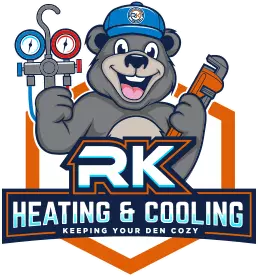Have you ever noticed your air conditioning unit turning off and on frequently? This issue, known as short cycling, can be more than just a minor inconvenience. It can reduce the efficiency of your air conditioner and significantly increase your energy bills. Understanding why short cycling occurs and addressing it promptly is essential for keeping your home comfortable and your AC system healthy, especially in the warmer months.
Short cycling can lead to several long-term problems, including wear and tear on your AC components and reduced performance. Common symptoms include your AC unit failing to cool adequately, the system shutting off prematurely, or an overall increase in utility costs. Addressing short cycling early can save you from more significant repairs or even having to replace your unit altogether.
Understanding Short Cycling
Short cycling is when an air conditioner turns on and off frequently without completing a full cooling cycle. Typically, an AC unit should cycle on, run for several minutes to cool your home, and then cycle off once the desired temperature is reached. In a short cycling scenario, the unit doesn’t remain on long enough to achieve the desired cooling effect before shutting down.
This pattern not only prevents your home from cooling efficiently but also causes unnecessary strain on your AC system. Running in this inefficient manner, the unit has to start up more frequently, which can lead to increased energy use and wear on the system components. For homeowners in St. Louis, ensuring optimal performance of their air conditioning system is vital to maintaining a comfortable indoor environment during the hot summer months.
Common Causes of Short Cycling
One of the most prevalent causes of short cycling is thermostat issues. If your thermostat is malfunctioning, it may send incorrect signals to the AC unit, causing it to turn on and off irregularly. Common thermostat problems include faulty sensors or incorrect placement, where direct sunlight or other heat sources adversely affect operation.
Another common reason for short cycling is refrigerant leaks. When your AC system is low on refrigerant, it may not be capable of completing a full cooling cycle, leading to short cycling. Signs of refrigerant leaks include ice forming on the coils or a noticeable decline in cooling efficiency.
Dirty or clogged air filters can also contribute to this issue. When filters get blocked with dust and debris, they restrict airflow, forcing your AC to work harder and ultimately causing it to short cycle. Regularly checking and replacing air filters can prevent this problem.
Electrical problems, such as faulty wiring or loose connections, can also result in short cycling. Such issues may interrupt the power supply, causing the AC to behave erratically. It’s important to have our professionals inspect the system for any electrical problems to ensure safe and efficient operation.
By identifying and addressing these causes, you can help ensure your air conditioning unit operates smoothly, reducing the risk of short cycling and extending the lifespan of your equipment.
How to Fix Short Cycling
When dealing with short cycling, professional inspection and repair is often the most effective solution. Our professionals have the expertise to diagnose and address the underlying causes of short cycling. An inspection typically includes checking the thermostat settings and ensuring the wiring is intact. It also involves examining the refrigerant levels and inspecting the electrical components to identify any potential issues.
Regular maintenance plays a significant role in preventing short cycling and keeping your AC unit running smoothly. Creating a maintenance schedule can help. This should include:
– Checking and replacing air filters every one to three months.
– Inspecting the thermostat regularly to ensure it’s functioning correctly.
– Scheduling professional maintenance at least once a year for a thorough check-up, including refrigerant levels, electrical connections, and AC performance.
Upgrading outdated or incompatible equipment can be another effective strategy if you consistently face issues. Older systems may not work efficiently, particularly if they’ve been inadequately serviced or have outlived their optimal lifespan. Installing a modern, efficient air conditioning unit can enhance cooling performance, reduce energy consumption, and minimize the likelihood of short cycling.
Final Thoughts
Addressing short cycling promptly ensures your home remains comfortable and your energy bills remain manageable. By tackling the underlying causes of short cycling, you can extend the life of your AC system and boost its efficiency in cooling your home, particularly during the sweltering summer months.
If you notice that your air conditioning system is not performing as it should, it’s wise to seek professional help. Experienced technicians can assess your system, provide accurate diagnoses, and implement effective solutions to restore your AC’s performance. Your comfort is greatly enhanced when your AC operates reliably and efficiently.
If you are ready to restore reliable cooling performance in your home, consider our professionals for expert support through our air conditioning repair in St. Louis to tackle short cycling issues and improve overall efficiency. For a quick estimate or to book a service visit, please contact us today.

